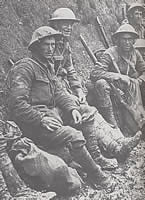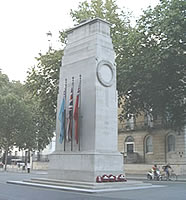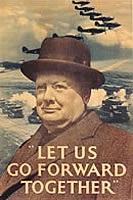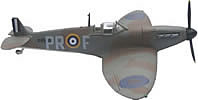Study, work or travel in the UK. British
culture and life.


Modern British history (1914-present)
|
|
Study, work or travel in the UK. British
culture and life.
|
|
||
|
|
|
|
||
 |
||||
|
|
|
|
||
|
|
|
|||
 |
||||
|
Modern British history (1914-present)
|
||||
| Ruling family | King/Queen | Dates |
|
HOUSE OF WINDSOR |
George V (5th) | 1910-1936 |
| Edward VIII (8th) | 1936-1936 | |
| George VI (6th) | 1936-1952 | |
| Elizabeth II (2nd) | 1952- |
| Year | Prime Minister | Party |
| 1908 | Herbert H. Asquith | Liberal (1915: Coalition Government) |
| 1916 | David Lloyd George | Liberal (Coalition Government) |
| 1922 | Andrew Bonar Law | Conservative |
| 1923 | Stanley Baldwin | Conservative |
| 1924 | James Ramsay MacDonald | Labour |
| 1924 | Stanley Baldwin | Conservative |
| 1929 | James Ramsay MacDonald | Labour |
| 1931 | James Ramsay MacDonald | Labour (National Government) |
| 1935 | Stanley Baldwin | Conservative (National Government) |
| 1937 | Neville Chamberlain | Conservative (National Government) |
| 1940 | Winston Churchill | Conservative (Coalition Government) |
| 1945 | Clement Attlee | Labour |
| 1951 | Winston Churchill | Conservative |
| 1955 | Sir Anthony Eden | Conservative |
| 1957 | Harold Macmillan | Conservative |
| 1963 | Sir Alec Douglas-Home | Conservative |
| 1964 | Harold Wilson | Labour |
| 1970 | Edward Heath | Conservative |
| 1974 | Harold Wilson | Labour |
| 1976 | James Callaghan | Labour |
| 1979 | Margaret Thatcher | Conservative |
| 1990 | John Major | Conservative |
| 1997 | Tony Blair | Labour |
| 2007 | Gordon Brown | Labour |
 |
The
Great War (7 DVDs) |
 |
All
About the First World War 1914-1918 Author: Pam Robson, John York Publisher: Hodder Wayland Date: May 1996 |
 |
Forgotten
Voices of the Great War (book) Author: Max Arthur Publisher: Ebury Press Date: October 2003 Audio CD |
Key
Battles of World War I Author: David Taylor Publisher: Heinemann Date: 2002 |
 Trench warfare in France |
 The Cenotaph The Mall, London |
|
|
Buy products connected with Britain in World War One:
|
|
Buy products connected with Britain in the inter-war
years:
|
 |
The
World At War |
 |
All
About the Second World War 1939-1945 Author: Pam Robson, John York Publisher: Hodder Wayland Date: May 1996 |
| Ration
Book Cookery: Recipes and History Author: Gill Corbishley Publisher: English Heritage Publications Date: April 2004 |
 Winston Churchill |
 A Spitfire |
|
|
Buy products connected with Britain and World War Two:
|
|
Buy products connected with Britain after World War
Two:
|
 |
A
History of Modern Britain Author: Andrew Marr Publisher: Macmillan Date: May 2007 |
 |
This
Sceptred Isle: The Twentieth Century Publisher: Penguin Books Date: September 2000 Audio CDs |
 |
Modern
Britain 1914 - Present Publisher: Kingfisher Books Date: May 2002 |
 |
Britain's
Century Publisher: Dorling Kindersley Date: August 2000 |
|
|
|